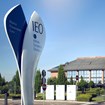To favor translational research, the department has launched a number of top-down scientific programs whose specific aim is to create technological platforms for translational science and foster the interaction between basic scientists and clinicians, on specific research projects. They include: i) Novel Biomarkers Program, ii) Novel Diagnostics Program, iii) Smartfood Program. In addition, our Department is fully committed to gender equality, with the WoMen in Science Project, and deeply involved in Ethical, Legal and Societal Issues, through the long standing expertise in bioethics as well as in Science and Technology Studies-based analysis of contemporary biomedicine, with the Science in Society Project.






